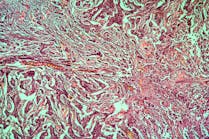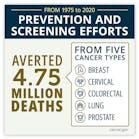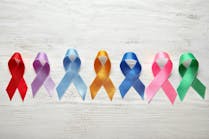An LSU chemist and her research team have discovered a promising new treatment for triple-negative breast cancer, or TNBC, an aggressive form of breast cancer with limited treatment options, according to a news release from the university. Compared to other types of breast cancer, TNBC has a shorter overall survival rate, and is more common in women of color and women under the age of 40.
TNBC cells do not have the receptors commonly found in other forms of breast cancer, which can complicate treatment. Currently, TNBC treatment involves multimodality therapies, including surgery, radiation, and non-targeted chemotherapy. However, non-selective chemotherapy can be problematic for patients.
“Non-selective chemotherapy treatments can’t differentiate between cancer and non-cancerous tissue, resulting in harm to both cancer and non-cancerous, healthy cells,” said LSU Chemistry Assistant Professor Fatima Rivas. “Thus, there is a critical need to discover effective drug therapies that target TNBC cells without harming normal cells.”
The Rivas research group is studying potential effective therapies using natural products to selectively target tumor cells and reduce mortality rates associated with TNBC.
Rivas and her collaborator, Associate Professor Michelle M. Martínez Montemayor from the Universidad Central del Caribe School of Medicine, identified ergosterol peroxide, a natural product from Ganoderma lucidum mushrooms, and developed Erperox. The mushroom-derived compound targets TNBC models without inducing cytotoxicity to normal tissue.
A Canadian company, Revive Therapeutics, recently licensed Erperox, which had been previously patented, and will fund preclinical efforts on determining the mode of action of Erperox and in vivo efficacy and safety studies. The team’s goal is to advance this compound to preclinical candidate status so they can clear the path toward future clinical use for TNBC.
“Natural products and their structural analogues have historically made a major contribution to the development of therapeutics, especially for cancer and infectious diseases,” Rivas said. “We believe that current scientific and technological advances will continue to facilitate the use of natural product-based drug discovery program across the United States to improve human health and longevity.”
According to Rivas, nearly half of patients in the United States with cancer reported that they began taking dietary supplements after receiving a diagnosis of cancer. The team hopes that their current in vitro and in vivo data will provide science-based evidence on the potential of Erperox.
The research team also received funding from Columbia University’s Translational Therapeutics Accelerator (TAP) and Puerto Rican Trust and the National Institutes of Health (NIH) IDeA Networks of Biomedical Research Excellence (INBRE) program. These sponsored funds will assist the team in expanding their knowledge of drug dosing, potential synergies with current chemotherapeutics and potential toxicity effects.





